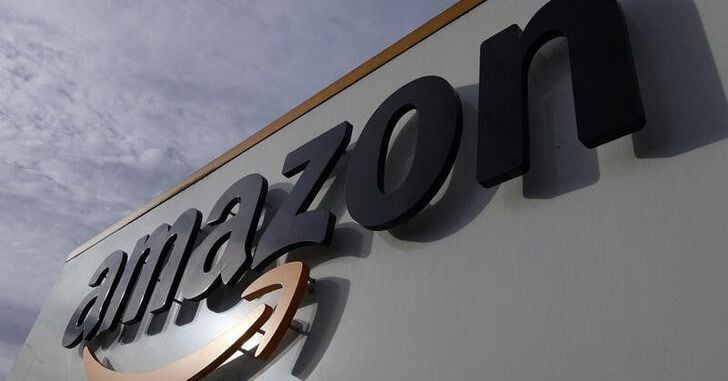WASHINGTON, Sept 26 (Reuters) - The U.S. Federal Trade Commission filed a long-awaited antitrust lawsuit against Amazon.com (AMZN.O) on Tuesday, charging the online retailer with harming consumers through higher prices in the latest U.S. government legal action aimed at breaking Big Tech’s dominance of the internet.
The lawsuit had been expected after years of complaints that Amazon.com and other tech giants abused their dominance of search, social media and online retailing to become gate keepers on the most lucrative aspects of the internet.
The lawsuit, which was joined by 17 state attorneys general, follows a four-year investigation and federal lawsuits filed against Alphabet’s (GOOGL.O) Google and Meta Platforms’ (META.O) Facebook.
“The FTC and its state partners say Amazon’s actions allow it to stop rivals and sellers from lowering prices, degrade quality for shoppers, overcharge sellers, stifle innovation, and prevent rivals from fairly competing against Amazon,” the agency said in a statement.
The FTC said that it was asking the court to issue a permanent injunction ordering Amazon.com to stop its unlawful conduct. The lawsuit was filed in federal court in Seattle, where Amazon is based.
Amazon shares were down 3%.
Amazon said that the FTC lawsuit was wrongheaded and would hurt consumers by leading to higher prices and slower deliveries.
“The practices the FTC is challenging have helped to spur competition and innovation across the retail industry, and have produced greater selection, lower prices, and faster delivery speeds for Amazon customers and greater opportunity for the many businesses that sell in Amazon’s store,” said David Zapolsky, Amazon’s general counsel.
The FTC said that Amazon, founded in 1994 and worth more than $1 trillion, punished sellers that sought to offer prices that were lower than Amazon’s by making it difficult for consumers to find the seller on Amazon’s platform.
Other allegations include that Amazon gave preference to its own products on its platforms over competitors also on the platform. ‘MONOPOLY POWER’
FTC Chair Lina Khan said that Amazon had used illegal tactics to fend off companies that would have risen to challenge its monopoly.
“Amazon is now exploiting that monopoly power to harm its customers, both the tens of millions of families that shop on Amazon’s platform and the hundreds of thousands of sellers that use Amazon to reach them,” she said.
Khan, while a law student, wrote about Amazon.com’s dominance in online retailing for “The Yale Law Journal” and was on the staff of the House committee that wrote a report issued in 2020 that advocated reining in four tech giants: Amazon.com, Apple (AAPL.O), Google and Facebook.
Amazon’s critics welcomed the lawsuit.
“No corporation has ever centralized this much power across so many crucial sectors. Left unchecked, Amazon’s power to dictate and control threatens the rule of law and our ability to maintain open, democratically governed markets,” said Stacy Mitchell of the Institute for Local Self-Reliance which has pushed for the government to act against Amazon.
The need to take action against Big Tech has been one of the few ideas that Democrats and Republicans have agreed on. During the Trump administration which ended in 2021, the Justice Department and FTC opened probes into Google, Facebook, Apple and Amazon.
The Justice Department has sued Google twice - once under Republican Donald Trump regarding its search business and a second time on advertising technology since Democratic President Joe Biden took office. The FTC sued Facebook during the Trump administration and Biden’s FTC has pressed forward with the lawsuit.



It indirectly comes from shareholders. Money gone to pay fines isn’t distributed by dividends. Theoretically, this hurts shareholders by decreasing the value of a share, since the company is worth less money after paying the fine. However, assessing a fine that shareholders have to pay out of pocket would trample the concept of limited liability and cause financial panic. I remind you that it’s not only rich people that are Amazon shareholders.
I understand the sentiment but this is a pretty uninformed take.
To be honest, though, I am finding it harder to sympathize with people who hold shares in a company. Publicly traded companies are everything wrong with the modern-day economy.
It used to be that you work for a place long enough and they pay out a pension when you retired. Now, your retirement comes from a 401k, the value of which is determined by how successfully whatever company you (or rather, your employer) trusts with your money, and then they choose who to invest in regardless of ethics or client preferences. And of course they have to skim enough off the top to pay for their own operations as well.
The entire system is just grift after grift. It doesn’t even seem worth it anymore after we’ve now hit several major economic slumps within just the past 15 years, coupled with the occasional ponzi scheme sprinkled here and there.
This is why a public pension is the superior option in a sane country. A private pension can be mis-invested or shuttered. A 401k requires financial knowledge or fees individually. A public pension has more safeguards in place and is professionally managed by public servants who cannot use your money to manipulate the market for personal gain. (Their retirement is in a blind trust).
It would certainly wake people up to the reality of American business though. If the shareholders are primary recipient of gain then they should be liable.
Of course we could always go back to before share holder primacy…